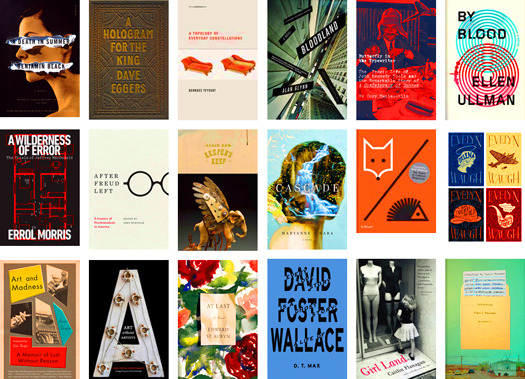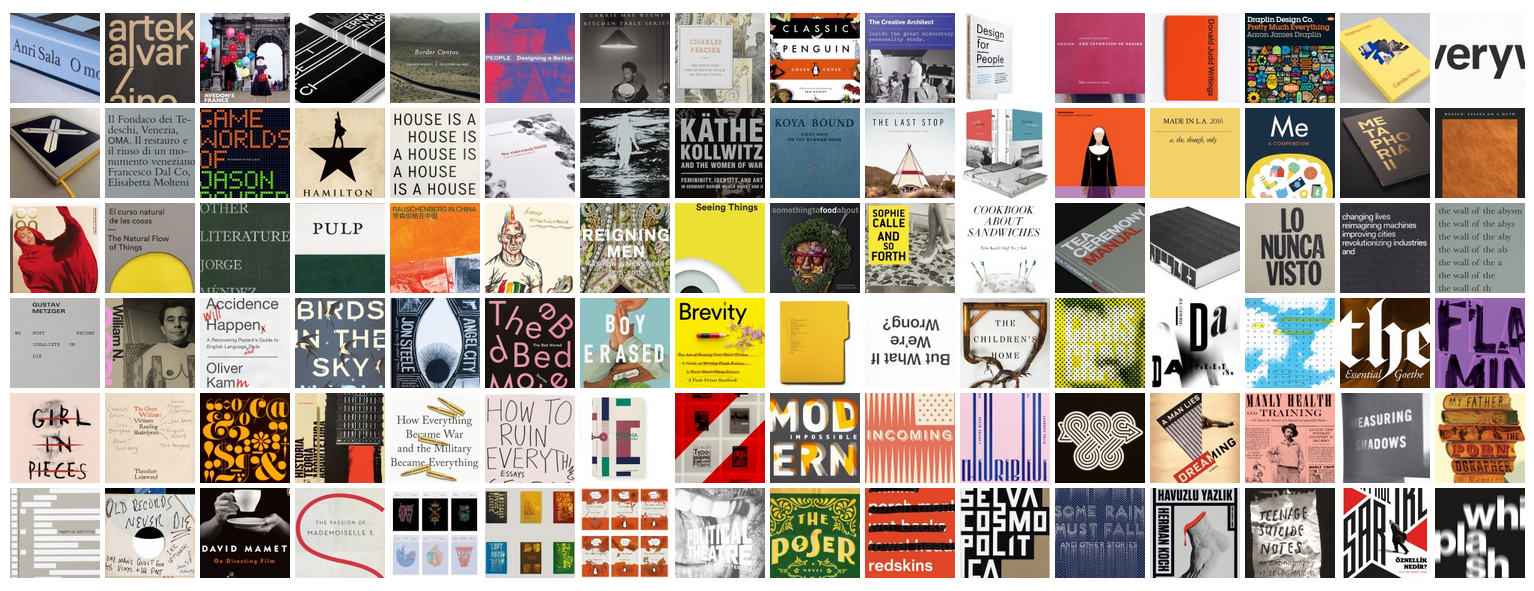
June 26, 2013
50 Books/50 Covers 2012 Winners Announced

18 of the 50 winning covers.
We are pleased to announce the winners of the 2012 Fifty Books / Fifty Covers show, organized by Design Observer in association with AIGA and Designers & Books. The fifty winning books can be viewed here; the fifty winning covers can be viewed here.
This competition continues a tradition that dates back to 1922, when American Institute of Graphic Arts, then only six years old, mounted the first “Fifty Books of the Year” exhibition. In an age where reading increasingly happens on screens, it will perhaps be a surprise to some that book design maintains its hold on the imagination of twenty-first century designers. We received 1,213 entries this year, slightly up from last year. Books published in any form in the English language — short run productions as well as commercially published books — were eligible, and entries were submitted from a dozen countries. A little more than 11% of eligible books were accepted, and only 6% of eligible covers. This is the best of the best.
It is clear from the winning entries that designers and publishers are not just resigned to the new world but are actively challenging it. With information so readily accessible in digital form, anyone going through the trouble of designing, manufacturing, and distributing a traditional book had better be prepared to deliver something special. The books this year demonstrate astonishing attention to craft, as well as startling ambitions to disrupt expectations about what constitutes a “traditional” book in the first place. Covers as well do double and triple duty, functioning not just as alluring packaging on the bookstore shelf, but as telegraphic icons in the realm of online marketing and sortable rubrics in online libraries.
The designers who selected the fifty best books 92 years ago would be baffled, and perhaps even outraged, by some of the examples of the craft we honor today. Yet one hopes that they would recognize a familiar commitment to the authors, the readers, and the common culture that make these achievements so valuable, and so indispensable today.
Observed
View all
Observed
By Michael Bierut
Recent Posts
A quieter place: Sound designer Eddie Gandelman on composing a future that allows us to hear ourselves think It’s Not Easy Bein’ Green: ‘Wicked’ spells for struggle and solidarity Making Space: Jon M. Chu on Designing Your Own Path Runway modeler: Airport architect Sameedha Mahajan on sending ever-more people skyward



